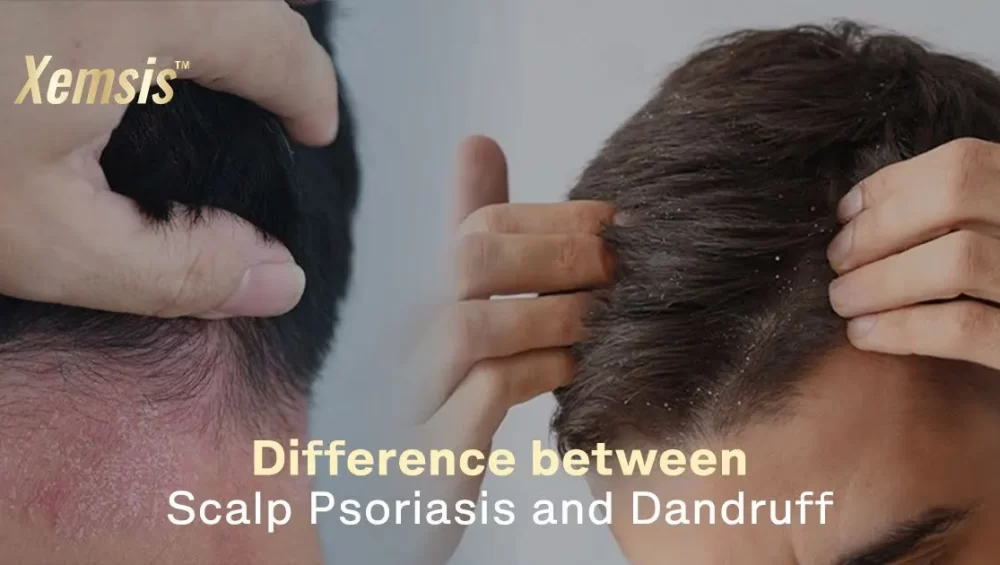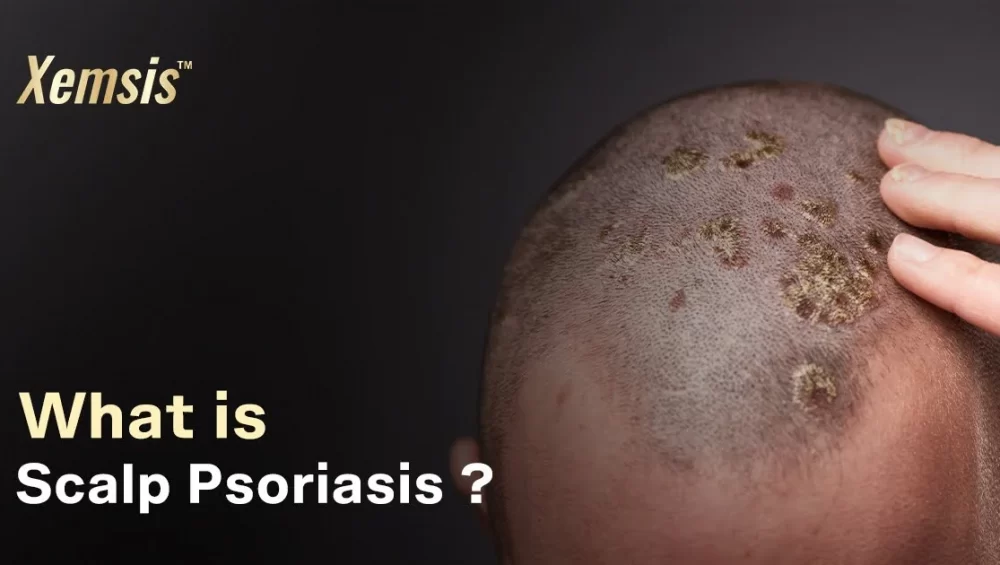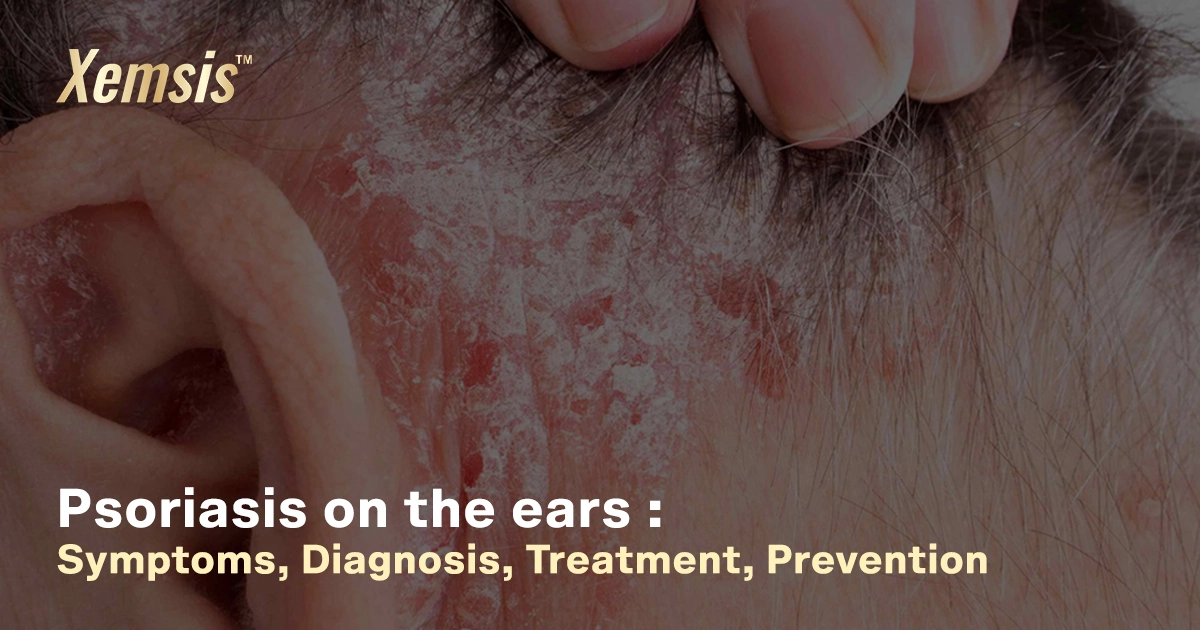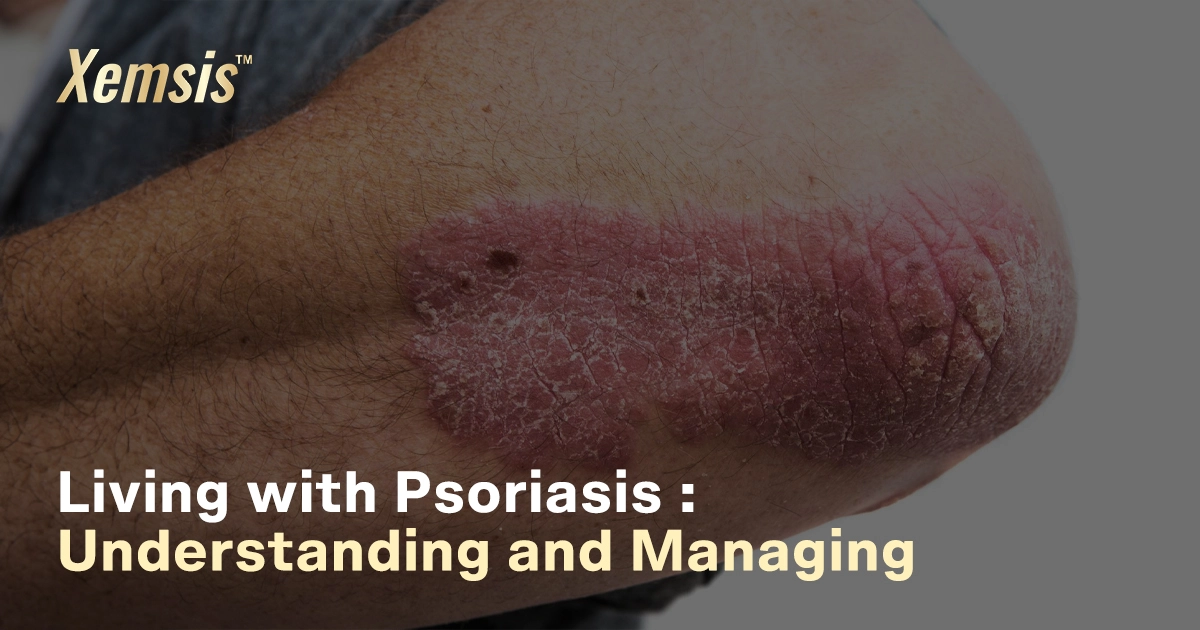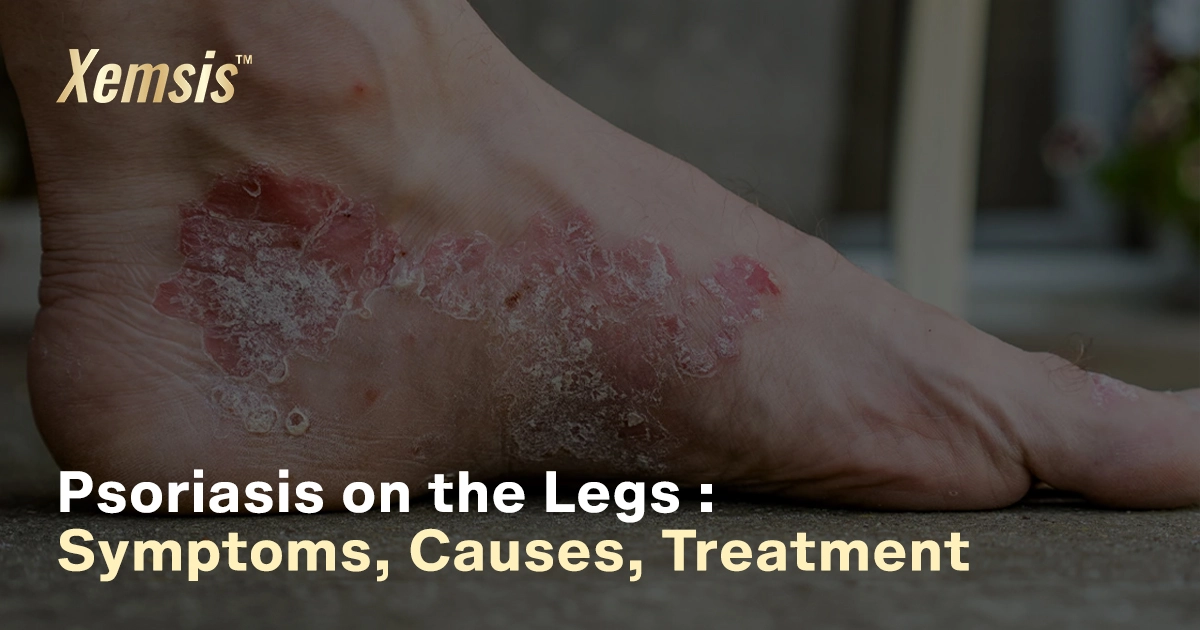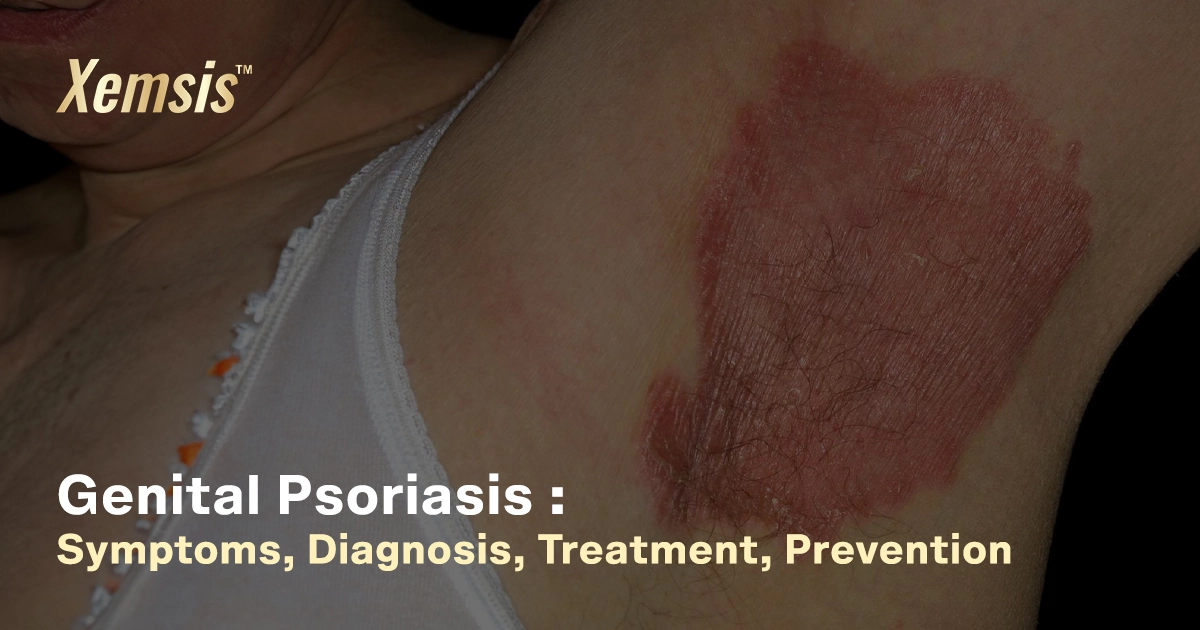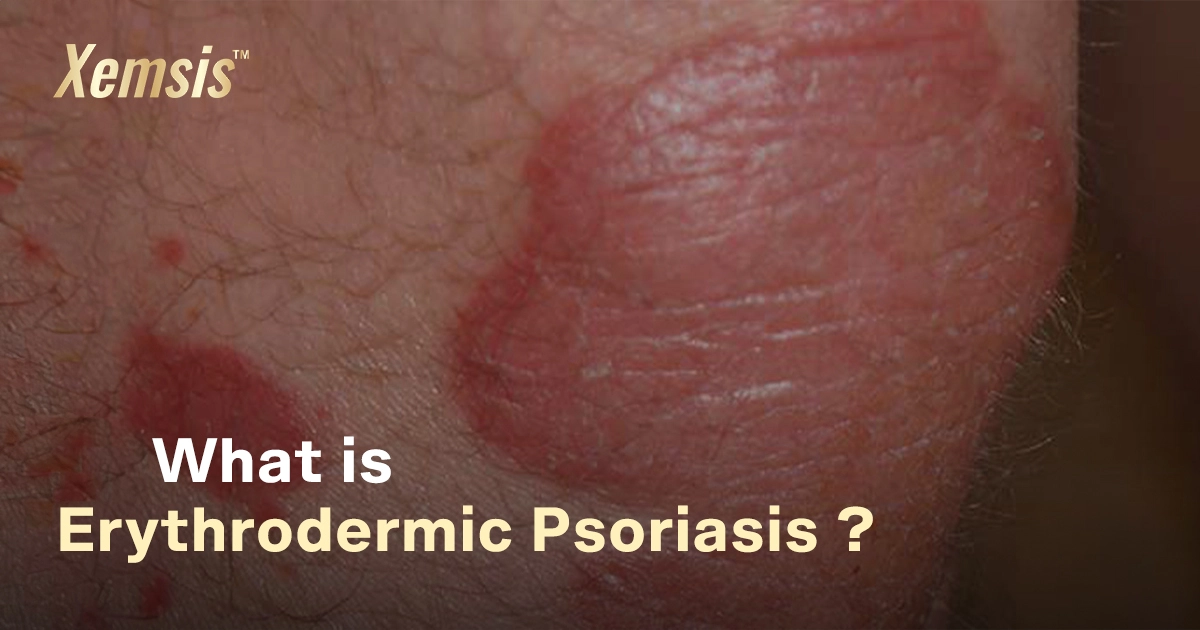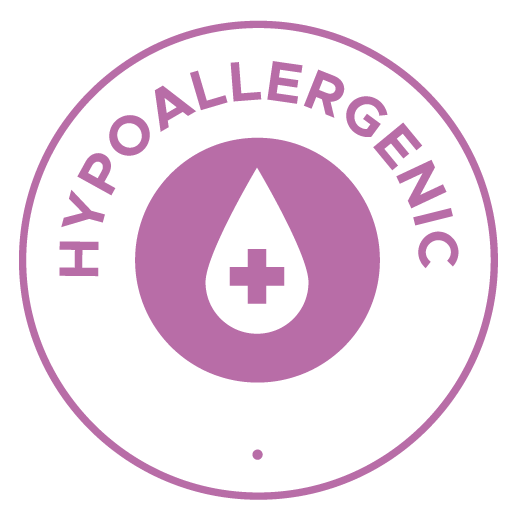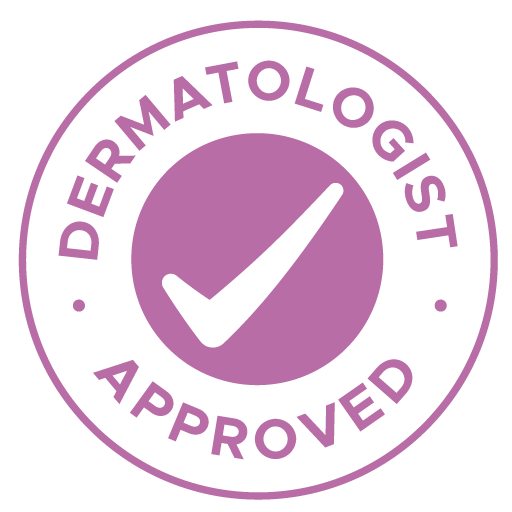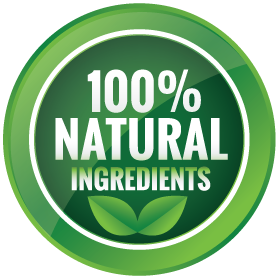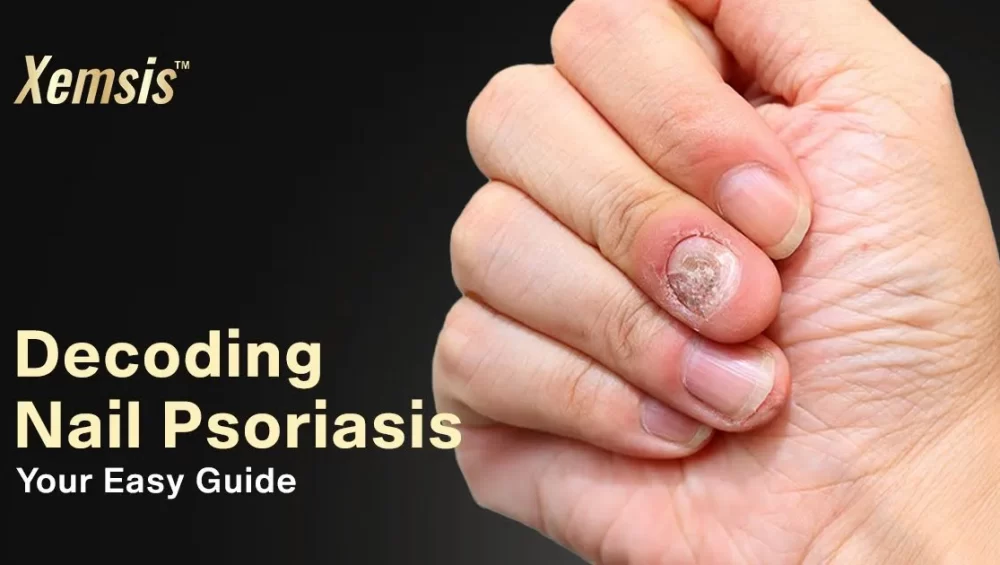 CategoriesNail Psoriasis
CategoriesNail PsoriasisNail Psoriasis?
What is Nail Psoriasis?
Nail psoriasis is a chronic autoimmune condition that causes the skin cells to reproduce more quickly than usual, which makes the dead skin cells gather under the surface of the nails instead of shedding. This results in inflammation and rashes around the finger and toenails, which is called nail psoriasis. This condition is non-contagious and won’t get transferred from physical contact with the affected person.Signs and Symptoms
- Discoloration – The skin underneath the nails will have a change in color that looks like patches of brown, yellow, red, or white.
- Pitting – The nail may develop a dent, hole, roughness, or pit affected by nail psoriasis. This can be shallow or deep, small or large, and can affect multiple nails on fingers and toes.
- Changes in Structure – The nail may crumble and change from its original size due to nail psoriasis. Also, the skin underneath the tip of the nails will develop a cut and will slowly separate from the fingers or toes.
- Discomfort – Leaving the nail psoriasis untreated will cause blood leakage under the nails that may result in tenderness, and pain and affect the ability to stand, walk, or use the affected fingers and toes.
Who gets Nail Psoriasis?
- Research says that people over the age of 40 have a higher chance of getting nail psoriasis compared to younger people.
- People with a history of psoriasis in family have high chance of getting nail psoriasis
- A study says that people with other types of psoriasis and psoriatic arthritis have a 90% chance of developing nail psoriasis.
Causes of Nail Psoriasis
The exact cause of nail psoriasis has not been proven yet. However, doctors believe that family history and genetics play a role in the development of this condition. Though there is no proper evidence for its cause, nail psoriasis is often triggered by many factors, such as environmental conditions, stress, infections in nails, and certain medications.Home Remedies and Prevention
As nail psoriasis is a chronic condition, it won’t go away very easily. Let’s look at some of the home remedies and preventive measures to treat this condition.Remedies:
- Aloe Vera – It has excellent anti-inflammatory properties that help get rid of nail psoriasis symptoms. Apply the aloe vera gel to the affected areas of the nails before bed and rinse thoroughly in the morning.
- Turmeric – It has great anti-fungal properties that may help treat the symptoms of nail psoriasis. Make a paste by adding water to the turmeric powder and apply it several times a day to get positive results.
- Coconut oil – It has good moisturizing properties that may relieve excess itching caused by psoriasis. Apply it on a regulyar basis to the affected areas to relieve itching effectively.
Prevention:
- Wash your hands often with soap or sanitizer to prevent other dirt and bacteria from entering the affected areas.
- Keep the affected areas moisturized to avoid dryness
- Keep all the nails trimmed and cut the hangnail caused by psoriasis
- Make sure your affected areas of nails are kept safe during driving, playing, and other activities.
- The affected areas will be itchy. But avoid scratching, as it may worsen the condition.
When Should I See a Doctor?
Consult your doctor immediately:
- If you keep on developing new symptoms of nail psoriasis around the nails of fingers and toes,
- If your symptoms don’t improve after home remedies and pharmacy products,
- If your symptoms are getting worse with irritability, swelling, or bleeding.
Treatments
Firstly, the doctor examines your condition. They’ll also ask about the severity of the symptoms and family history of psoriasis, if any. If the symptoms are mild, doctors may prescribe some medications or oral medicines. But if the symptoms are worse, they may provide treatments in the hospital that include:- Removing the Nail – If the whole part of the nail is affected by swelling, doctors may remove the nail using surgery. When it grows back, the nail will still have an unusual appearance
- Laser or Light Therapy – Doctors may do Laser or Light therapy to treat the nail psoriasis with worse conditions.
- Injections – In more severe cases of nail psoriasis, doctors may inject thin needles with medicines directly into the affected areas around the nails.
Conclusion
Nail psoriasis is a challenging condition that creates discomfort and embarrassment in public. You may also try to hide the symptoms by applying nail polish. But hiding is never a solution. As the condition is chronic, hope and consistency in following the guidance of doctors are important.
Rakhul Mathivanan
Rakhul Mathivanan, a writer and filmmaker, focuses on creating innovative and unique content through directing short films, writing scripts, blogs, articles, case studies, and website content. He loves to watch movies, read books, listen to music, and travel. He has also had expertise in the field of writing and filmmaking for over a year and works closely with Xemsis by providing them with well-researched blogs about psoriasis.

